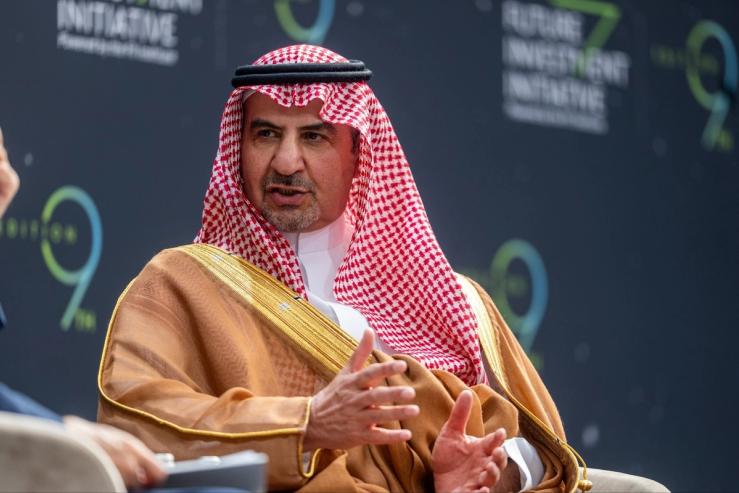The Scoop
Saudi Arabia plans to more than triple phosphate production as part of a strategy to boost non-oil exports and make mining a key pillar of its economy.
Expanding the production of phosphate — used in fertilizers to increase crop yields — could cost around $15 billion on top of existing investments in the space, Khalid Al Mudaifer, vice minister of industry and mineral resources, told Semafor in an interview.
Saudi Arabia currently produces around 6 million tons of phosphate a year, with state-controlled mining company Maaden embarking on a $7.5 billion expansion of capacity to 9 million tons a year by 2027. The kingdom ultimately aims to lift output to 18 million tons a year by 2040, Al Mudaifer said. That would make Saudi Arabia the world’s third-biggest producer, behind China and Morocco.
In this article:
Matthew’s view
Saudi Arabia’s mining industry is starting to deliver on a decade-old vision to turn the kingdom into an international hub for processing and trading in metals and minerals crucial to the energy industry and electrification. While phosphate is abundant, the kingdom is now starting to attract a lot of attention from global companies that are eager to tap what the government says is $2.5 trillion of rare earths, base metals, and phosphates, Al Mudaifer said.“We have very high potential, and there are many believers now,” he said. “It wasn’t the same five years ago.”
Critical minerals are likely to feature in upcoming talks between Crown Prince Mohammed bin Salman and US President Donald Trump when the Saudi de facto ruler visits Washington this month. Washington hopes that Saudi Arabia can eventually become an alternative supplier of the metals vital for everything from electric cars to missiles, a supply chain that is currently dominated by China.
Beijing has many of those supply lines wrapped up and has not been afraid to use that control as a tool in trade negotiations with Trump. As concerns rise about China’s monopoly over rare earth, Saudi Arabia is getting an increasingly receptive audience for its plans to at least $100 billion in the sector over the next decade.
Room for Disagreement
There’s still some skepticism in the mining industry about how economic it will be to exploit the kingdom’s mineral deposits, even as more global firms start to seek exploration licences there. Then there’s the environmental challenges — most significantly the country’s lack of water — and the financial limitations already starting to show up in other parts of the crown prince’s spending ambitions.
Even if those problems can be overcome, breaking China’s lock on rare earths may take another decade or even longer. And that’s assuming that China, already Saudi’s biggest trade partner, doesn’t also look to partner with the kingdom on its metals ambitions and play spoiler to the West’s goal of creating an alternative.
Know More
Expansion of the kingdom’s phosphate production would likely be split across three or four new projects, each costing between $5 billion to $8 billion, Al Mudaifer said. Almost all of the kingdom’s phosphate would be exported, he said.
Saudi Arabia is also working with international investors to establish funds focused on attracting foreign cash into mining and minerals in the kingdom as it looks to position itself as an alternative global supply hub to China.“There’s two or three international funds that want to be registered in the Saudi capital market that will focus on getting money from Saudi Arabia and money from outside specifically for mining and minerals,” Al Mudaifer.
The kingdom has established Manara Minerals, a joint venture between Maaden and the country’s sovereign wealth fund, to invest globally in extraction projects and bring back the resources to Saudi Arabia for processing. Saudi Arabia said it needs around $100 billion of investment in developing mining and processing facilities by 2035, with $45 billion already committed, Al Mudaifer said.
Notable
- Gulf states are leveraging their mineral resources, financial capital, and geographic location to compete with established players like China, according to the International Institute for Strategic Studies.
- Saudi Arabia’s Maaden and the US’ MP Materials signed an agreement in May to jointly develop a rare earth supply chain.


